Kiran Drall from India is studying for an English-language degree in Social Services at Turku University of Applied Sciences in Salo. An internship at a Finnish daycare centre brought a lot of new insights and different experiences. International students have received plenty of praise for their activity in internships.
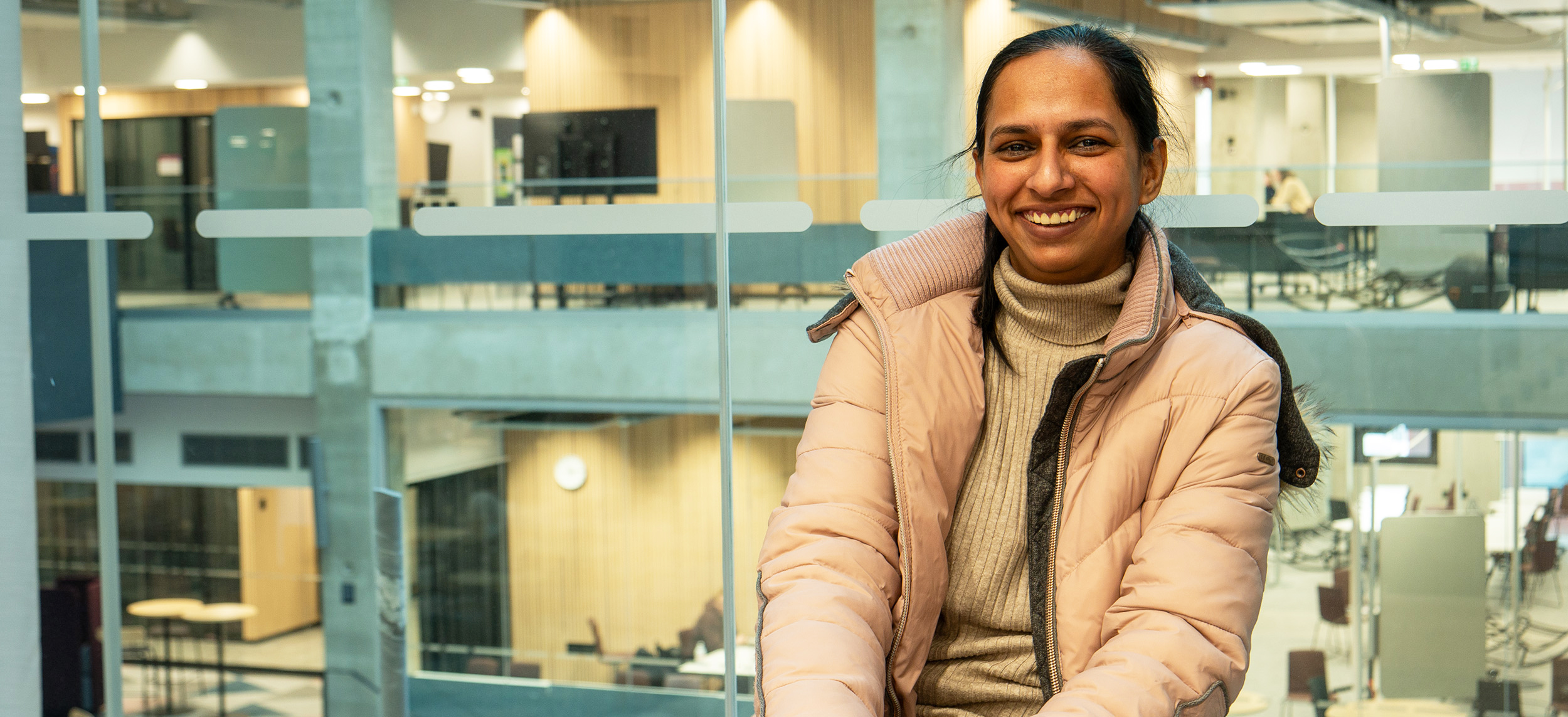
Kiran Drall studies in an English-language degree programme “Bachelor of Social Services” with an emphasis on early childhood education.
Julkaistu:
Muokattu:
Text and photos: Mari Loikkanen
When Kiran Drall from India arrived in Finland in the middle of a cold winter, there was a huge culture shock. Where do you buy food here? What to wear in freezing weather? What do stone-faced Finns think?
In the midst of these thoughts, Drall began her studies in Turku UAS’ new English-language bachelor’s degree programme in Bachelor of Social Services, Early Childhood Education. The training takes place at the Salo IoT Campus, but Drall lives with her family in Turku and commutes to Salo when needed.
A new English-language degree in social services was launched at Turku UAS in 2022, and the degree is already being completed by a second-year course. Most of the degree students have come to Finland from abroad to study. Drall is part of the first group to start, with 24 students with a foreign background.
Back home in India, Drall surfed the internet looking for study opportunities. Time and time again, she learned that Finland is the happiest country in the world. This attracted attention.
─ My husband and I wanted to build our lives somewhere other than Delhi. My sister lives in Canada, so I was interested in that too. However, Finland, the happiest country in the world, sounded attractive and we decided to give Finland a chance, Drall says.
Children’s independence is a delight
Happiness in Finland has been different from what you would think at first. Santa’s homeland did not have a great joyful carnival atmosphere at Christmas, as Drall had thought, but Drall is enthusiastic about Finnish freedom and independence, which can already be seen in the everyday life of small children. This became apparent when she completed an internship as part of her degree in social services by working in early childhood education at Aurala daycare centre in Turku.
─ During the internship, I learned completely new perspectives. In Finland, children are encouraged and guided to act independently and not to automatically do everything for the child. In India we do the exact opposite. This approach has opened my eyes and I’ve changed my behavior even with my own children because I’ve found it works, Drall says.
At Aurala daycare centre, Drall worked with children between the ages of 3 and 5. The internship tasks included ordinary activities related to the daycare centre’s everyday life, such as dressing, helping with meals and planning activities. The difference, however, was that Drall only knows a few basic sentences in Finnish.
─ The children were wonderfully straightforward, even though there was no common language. I communicated through gestures, images, eye contact and body language. These are skills that I have learned now in my studies in social services. And of course, if a child brings gloves in front of me, I understand that gloves should be helped on, Drall describes.
Internships went great
The internships of TUAS international social services students have gone very well. Many of the students headed to early childhood education for practical training and got a feel for everyday life in Finnish daycare centres. Internships were also carried out in schools and various associations.
Olli Toivonen, Lecturer in Social Services and Education at Turku University of Applied Sciences, says that the ability of international social services students to meet customers has been praised, even if they do not have Finnish language skills.
─ What they may lose in language skills, they win with their personality. The trainees have been praised. They have been described as active and have shown willingness to develop. It is a big life change to move to Finland, so those who come here are not passive anyway, but very motivated and active, he says.
Aurala daycare centre manager Mervi Levo says that the children immediately embraced Drall and the training went great. Hiring an English-speaking trainee requires willingness to interpret, but at the same time something new and different is brought into everyday life.
─ An international trainee brings a different perspective. It is refreshing to look at things from a slightly different perspective, and even I myself have to think about and justify why things are really done this way in Finland. I value that. It’s also fun to hear about their ways of doing things, Levo says.
She points out that international students cannot integrate into Finnish society if they do not get to learn in a real working environment.
─ At the same time, I see this as a way to help in settling in, she adds.
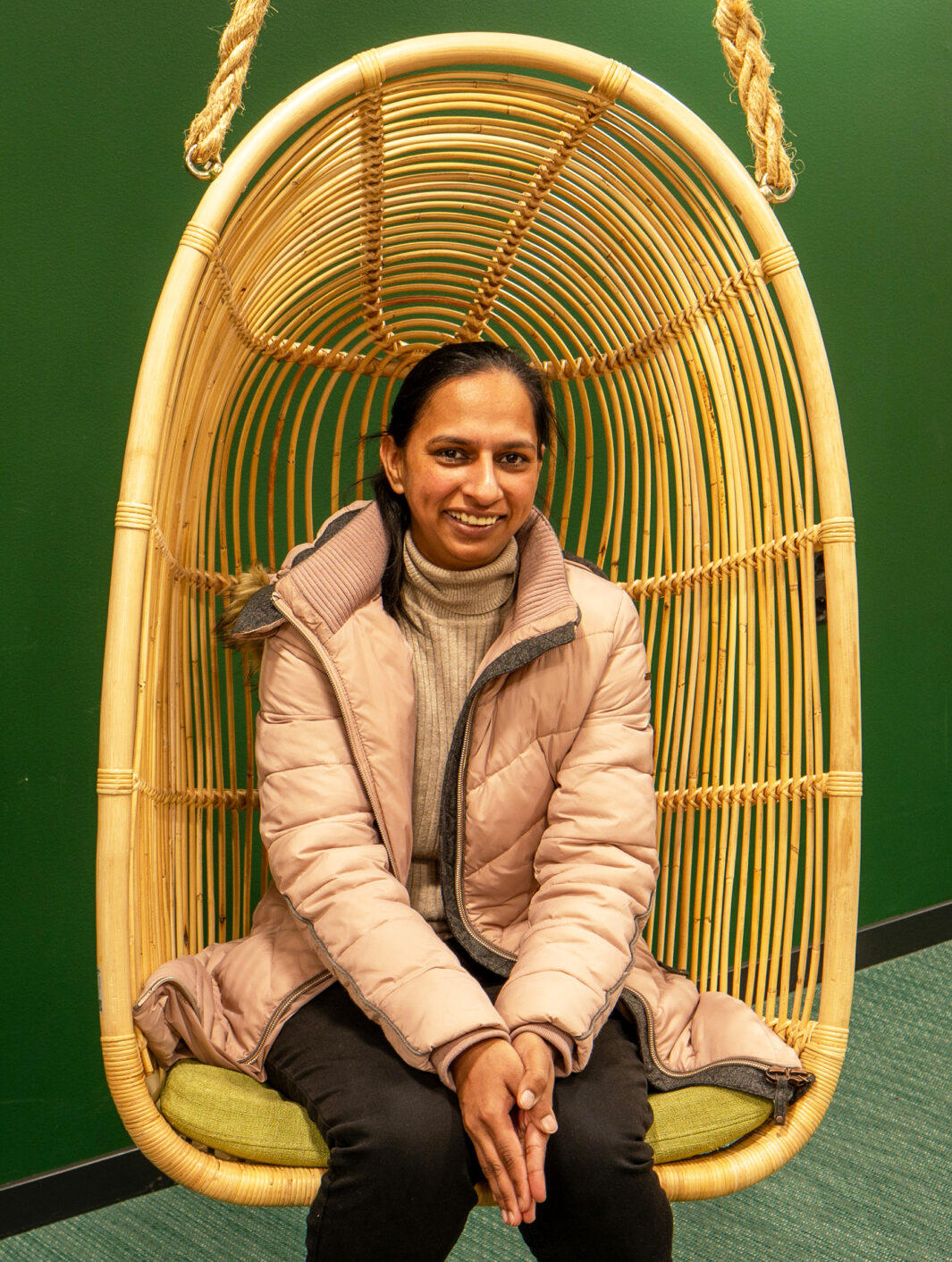
Happiness in Finland has been different than what you might first think. Santa’s home country didn’t have a big happy carnival atmosphere at Christmas. Happiness springs from freedom and independence, which can already be seen in the everyday life of small children.
Kiran Drall
Student in Turku UAS
Encountering cultural differences
Kiran Drall laughs that in Aurala daycare centre she learned how many different kinds of bread and milk there are in Finland. There are crispbread, rye bread, bread rolls, skim milk, lactose-free milk and oat milk. She could not have imagined the variety.
─ I received a lot of help and support during the internship, and I was also able to hold guided sessions for the children. For example, I held a painting session and a yoga session, and I also taught the children to recognize numbers. In India, children start practicing alphabets and numbers as early as the age of 2.5. It was also a surprise to me that this is not the case here.
Drall has already found a circle of friends in Finland and has settled in well. There’s a tuition fee for foreigners completing a higher education degree in Finland, and the tuition fees account for a large part of the financial burden. Drall works in the cleaning industry outside of her studies. Her doctor husband is working in another field until he can study for the medical degree required in Finland. The children of the family go to school in Finland.
─ We want to build a life here, but for that we have to learn Finnish. I have already studied the basics of Finnish, but it is not enough. In order to advance in your career, you need to know Finnish, Drall says.
According to lecturer Olli Toivonen, the studies have emphasized the importance of learning Finnish. Even though working life is becoming more multicultural, Finnish language skills have a significant impact on employment.
─ Practical training is also a language learning platform. There, motivation to learn a language grows, he says.
This article has been published 24.1.2024 on the previous tuas.fi site and has been updated 2.7.2024.
Get to know the degree
Turku: a Student city
Turku, located in the region of Southwest Finland, is one of Finland’s biggest cities. The bustling lifestyle structure and top class education, culture, and services, as well as the beautiful archipelago, make for a magnetic combination in Turku.
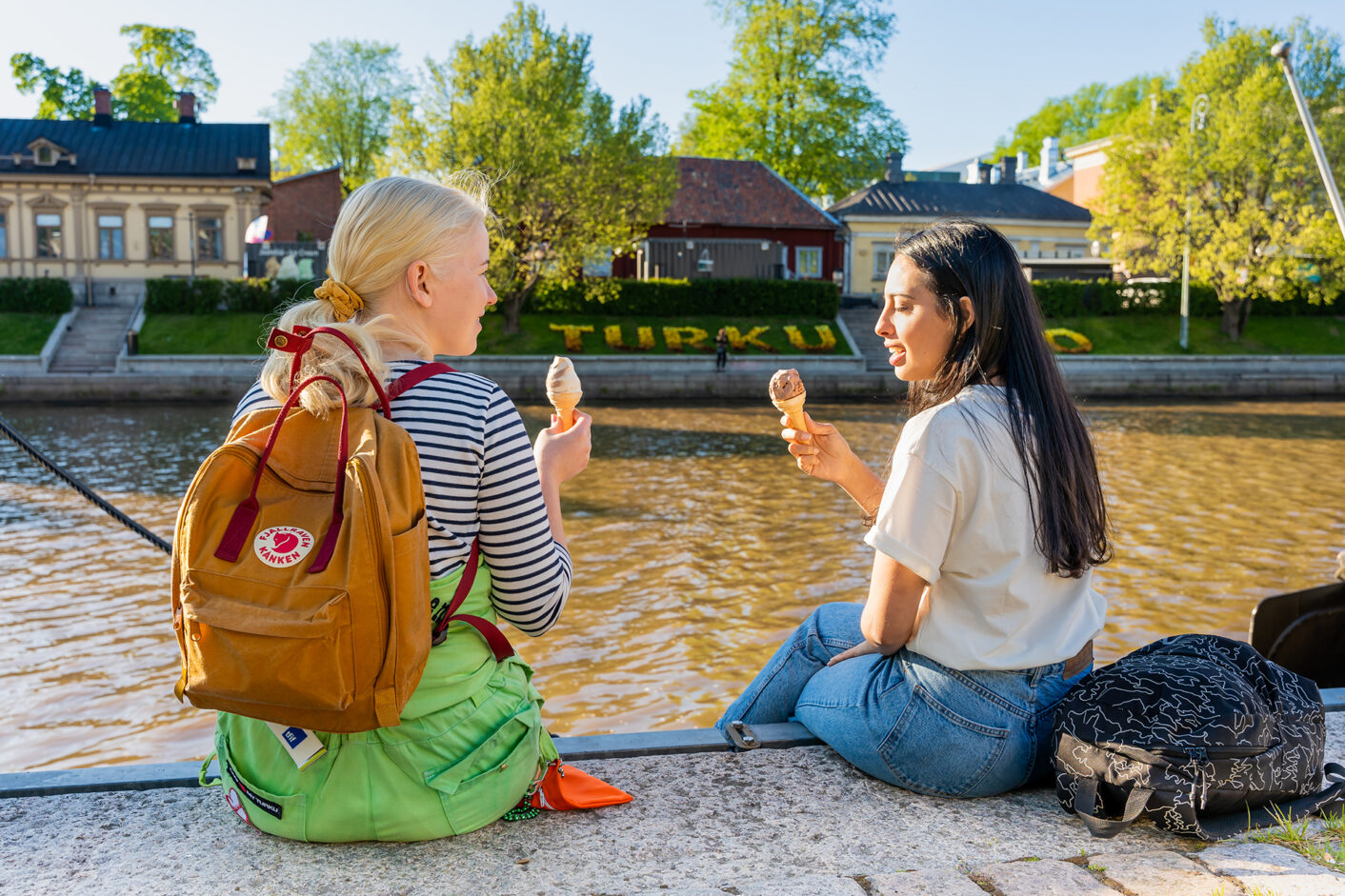
Read next
-
News
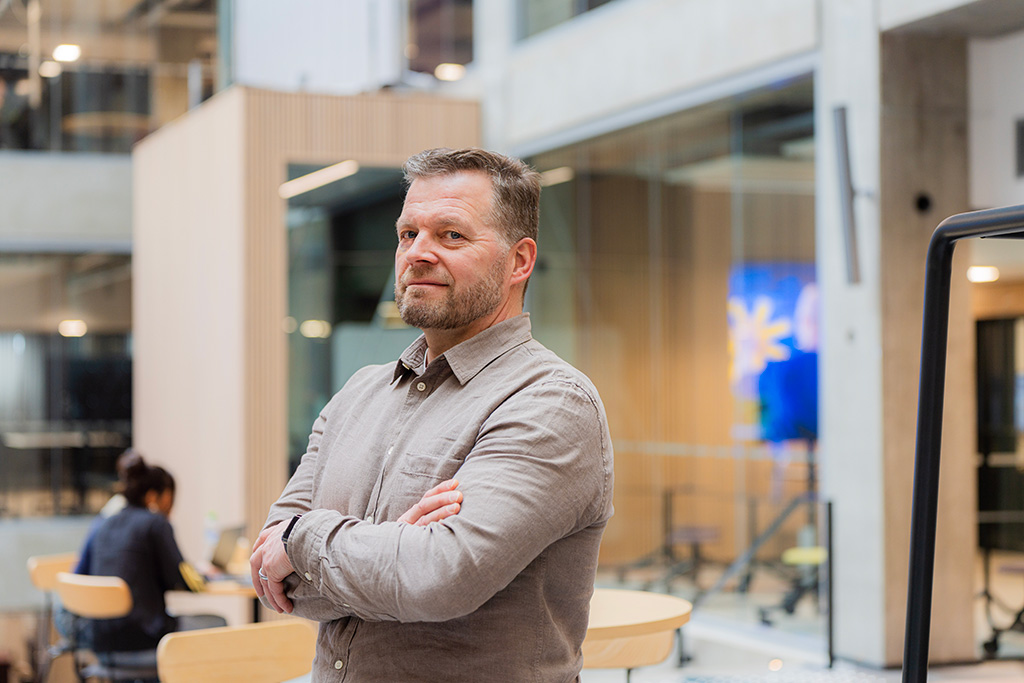
Researchers from Turku UAS win top positions in an international AI competition
Turku UAS’ pioneering project develops AI solutions in which machine learning can take place in a decentralized manner and without the need to transfer or share confidential data.
-
Press Release
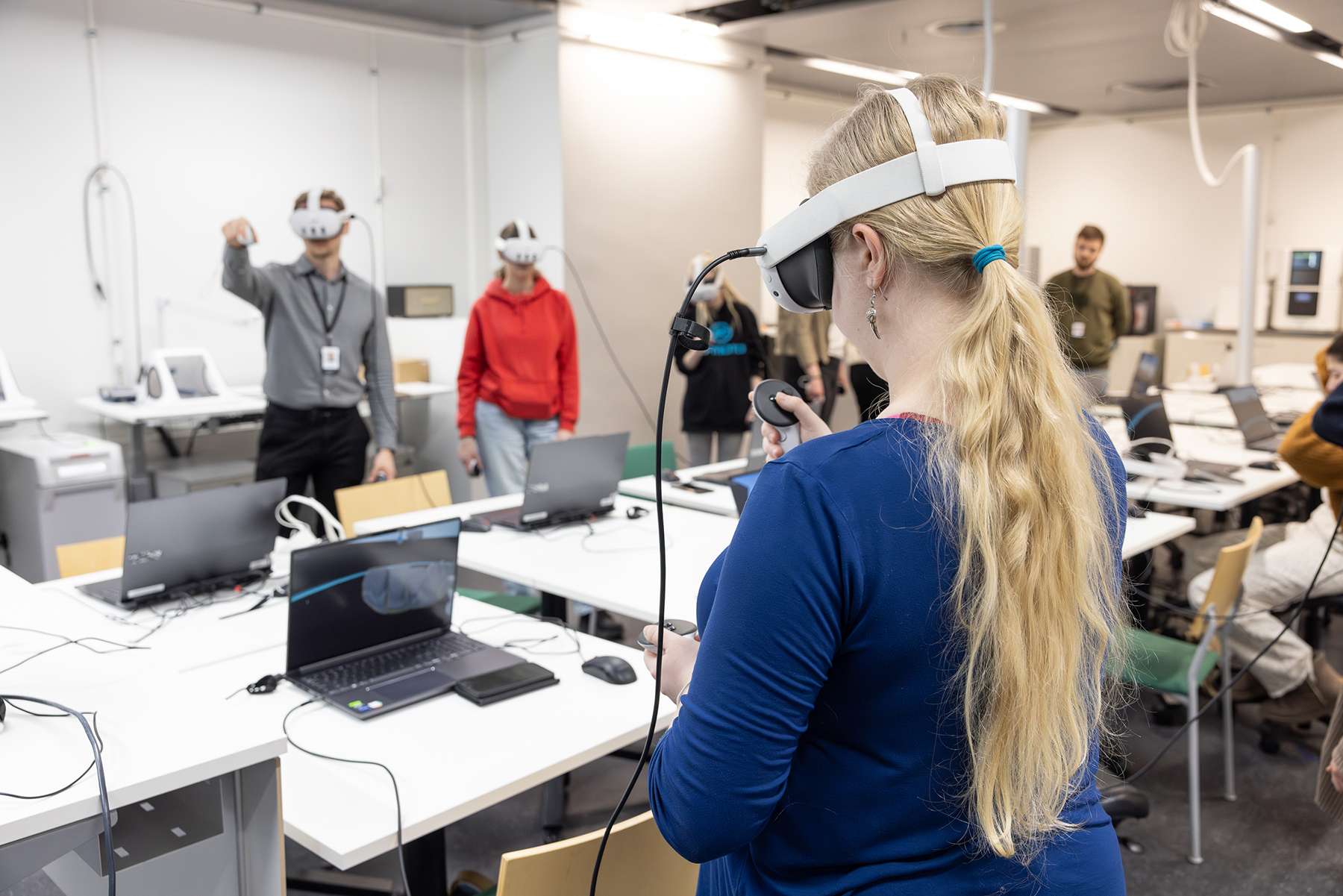
Wearing VR glasses in dental technology teaching – Taking learning to a new level
Something exceptional is happening at Turku UAS: for the first time in their studies, dental technology students get to experience the processing of 3D models in a completely…
-
Press Release
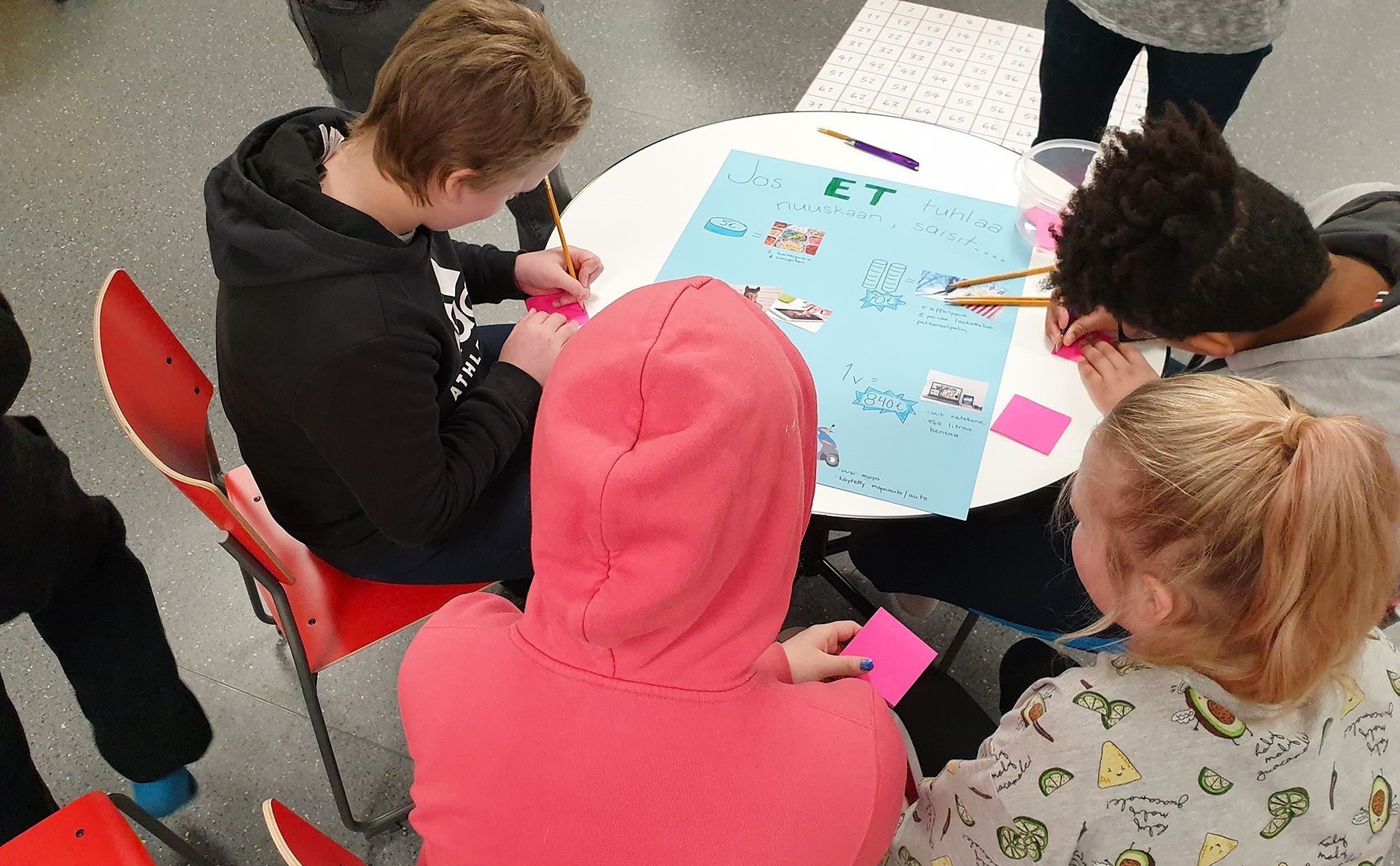
Turku UAS brings health kiosks to secondary schools in Masku, Mynämäki and Nousiainen
Launched in February, the Vinssi project encourages young people to lead substance-free lives. The aim is to support them in making lifestyle choices and reducing their use of…
